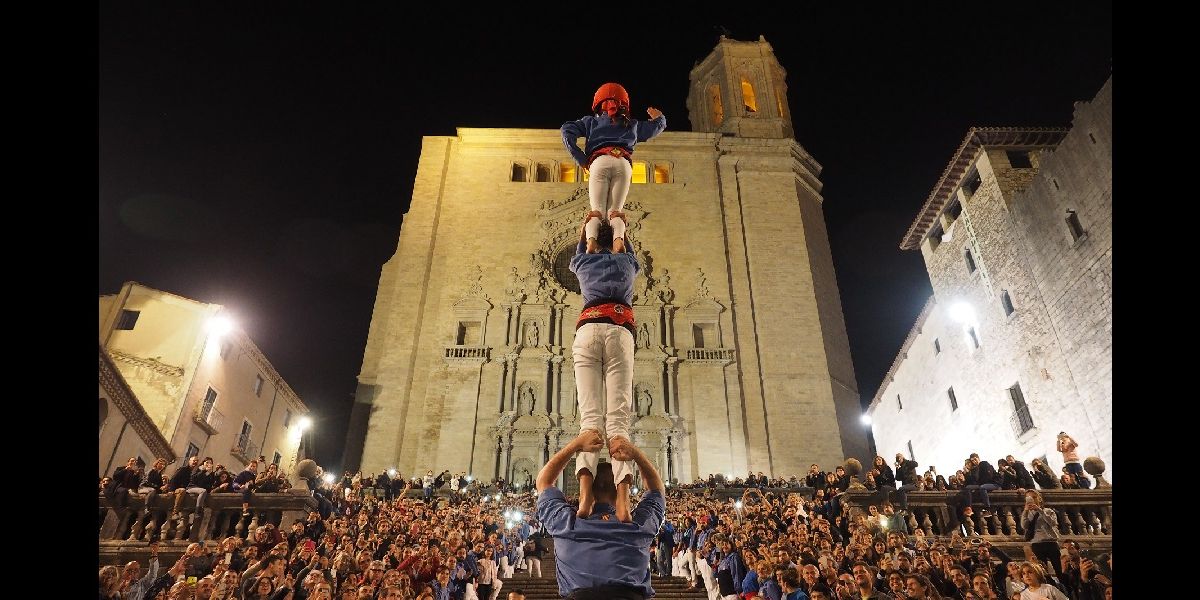WEAVE LabDay: Castellers in the world
This LabDay will explore Castellars (human castles: people who build towers with their bodies and make different constructions called castells).

- Title:
- Ajuntament de Girona / CRDI: Fires i Festes de Sant Narcís 2016, by Pere Duran, In Copyright
Online
The Centre for Image Research and Diffusion in Girona (CRDI) owns a large image archive which holds a wealth of materials reflecting different aspects of daily life in Girona and its rich cultural heritage. For the WEAVE project, CRDI has curated a collection of 6,500 photographs and 186 videos about Castellers (human castles: people who build towers with their bodies and make different constructions called castells). It has also curated a collection of daguerreotype photographs, the first commercially successful type of photographic process, and plans to digitise more than 100 in 3D and aggregate them to Europeana.
This LabDay will connect with Castellers’ associations in different countries and share experiences and points of view. The aim is to explain the phenomena of the Castellers and focus on the following aspects:
-
Amateurism. Human towers are an entirely amateur activity. The recompense is the satisfaction of self-improvement and achieving challenges.
-
Family leisure. It is an activity the whole family can enjoy.
-
Teamwork. In human towers, the glory always belongs to the group.
-
Associations are open and inclusive. There are people of all ages, from children to older people, from all social classes and origins.
-
Inclusion and integration are essential. By definition, human towers show solidarity: everybody is dedicated to the group, through their efforts, suffering, courage, and time spent. They are an open, plural and democratic model of association.
Speakers
-
Rosa Cisneros (Coventry University)
-
Joan Boadas
-
David Iglésias Franch (CRDI)
-
Alex Stan (IN2)
For more information, please visit the website.
